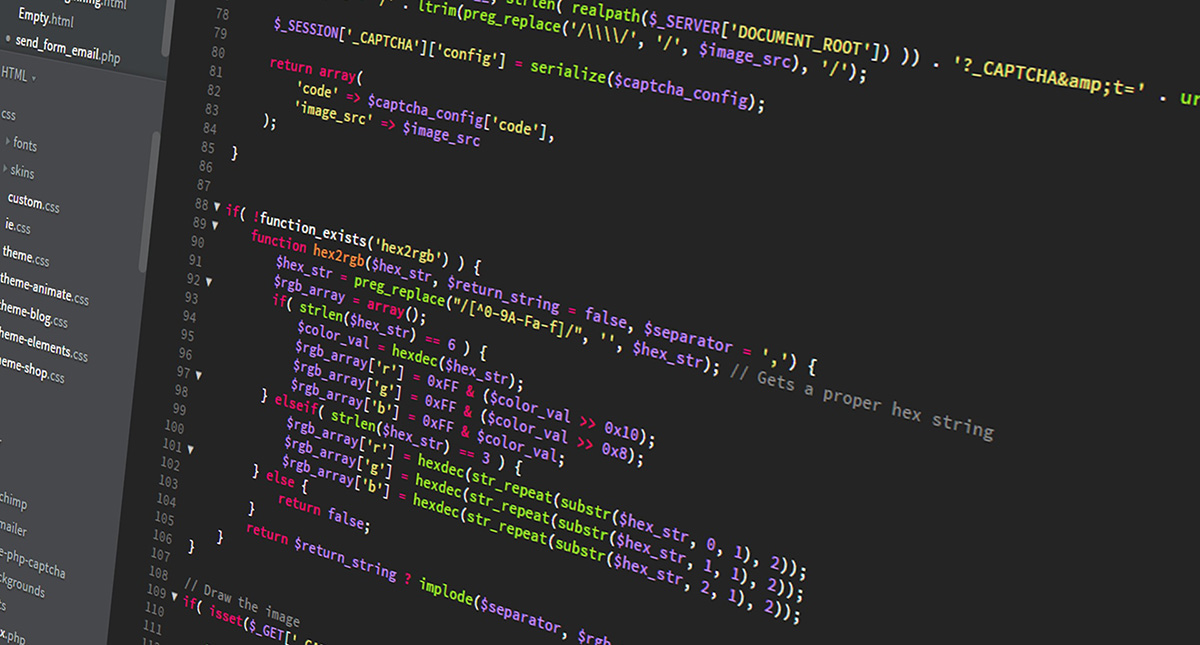Internet development is a fast-changing business. As a programmer, there’s absolutely no excuse for slacking off. You need to always learn and improve your abilities if you would like to remain on top of their business trends and before the match.
And if you are like most programmers, you probably looked at your code and wondered how to make it even better.
Even though the old adage, “practice makes perfect” surely applies to programmers, whether they are internet or software programmers, there are a couple other approaches to boost your development abilities.
In the following report, we’ll share five tips that you could start implementing today to become a better web developer.
Five fast tips for getting a better internet developer
No matter where you’re in your profession as a developer, there’s always space for advancement.
1. Write code daily
If you request any seasoned developer for their very best advice on enhancing your skills, almost everyone will tell you to write code each and every moment. While the information might seem obvious (and therefore not very helpful) the very simple fact is it works.
Just like you become better in any ability by practicing it regularly, you will get a better programmer if you write code on a standard basis. This will allow you to capture your mistakes and it will improve your typing skills also, which decreases the chances of earning mistakes.
Bear in mind, this doesn’t mean you have to think of new projects daily. However, it does mean practicing always.
And while you’re at it, take some opportunity to find out the ins and outs of your favorite code editor. Find out the programs and then try using it without relying upon your mouse along with your touchpad. You’ll be surprised at how much more effective you’ll be after you actually know all the attributes your principal instrument has.
Dedicate to open-source projects
Working on open minded projects from areas like GitHub helps you immerse yourself. You may choose to fork an present project and create your iteration of it. You can also contribute to an existing project by helping your project achieve its final phase or by fixing minor bugs to enhance the project’s stability.
Whichever option you choose, it inevitably leads to understanding your code better, plus additionally, it exposes you to other people’s code which could show you a fresh way of doing things.
In addition to this, you get to collaborate with others on fun projects that help you get a second (or a third!) Pair of eyes on your code. You will also learn to work better in a group and gain a good learning opportunity.
You might think you are not a good fit to write about code. After all, you’re not a writer. However, starting a blog, in which you talk about your knowledge with other people, is a excellent way to continue learning.
By writing about what you know, you may learn to organize your ideas and structure the topic you’re writing about. It offers you the opportunity to review what you already know and back this up with practical examples. In some cases, you might want to research the subject further which leads to more understanding and a better knowledge of the issue you’re attempting to cover.
Not only that, but a blog raises your visibility, and it places you as the expert on the topic. So, go on and add a website to your site. You’ve got nothing more to lose and a lot to profit.
Challenge yourself with a brand new skill
There’s absolutely no lack on growth tutorials on the web. And while some of the new trends in the development industry do not stick around for long, there’s no reason to keep within your comfort zone.
Break the monotony of working on various jobs by trying a brand new programming language or a new means of doing things.
If you are a WordPress theme developer, try your hands at developing a plugin. If you are a software developer working with web apps, why don’t you give mobile program developmenta try?
Don’t forget that in many circumstances, the tutorials on such websites have been written by developers with years old experience, plus additionally they often highlight new features from new technologies, languages, and APIs.
5. Schedule some regular down time!
While coding everyday is very beneficial, be careful to schedule regular downtime, too. As ironic as it may sound, time invested never generating anything will actually make you more effective.
If you’re constantly working, you run the chance of burning and living under pressure, which could lead to sloppy code, missed deadlines and missed chances. Your ability to think clearly and solve problems will deteriorate and, ultimately, your wellbeing will suffer too.
That’s why it’s vital to schedule routine downtime. If you discover you cannot break away from the office, then schedule it on your calendar and set a reminder to quit working for a definite period of time. In this manner, you could take a break without being overwhelmed by remorse, and you might even find it provides you motivation to drive the many intensive coding sessions.
Final ideas
Before you dash to execute the hints above, keep in mind that programming languages and technologies come and go. Although this is a fantastic reason to get familiar with as many languages as possible, you will grow to be a lot better developer if you invest time studying and mastering the programming principles.
The simple reality is that the basics never change and therefore it is better to pay more attention to the underlying structure as opposed to focus on mastering the latest new attribute to come out within a specific language. And as soon as you’ve got a firm grasp of the fundamentals, mastering your favourite language, or even picking up a brand new one, becomes easier. Happy coding!


